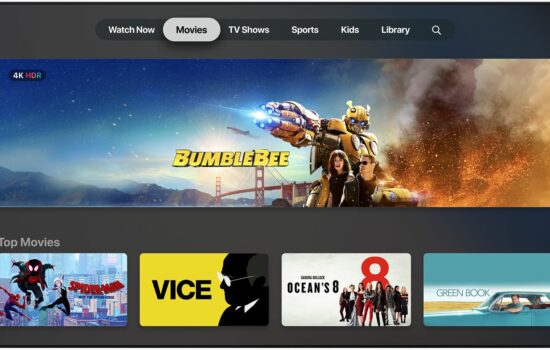Technology continues to play a significant role in today’s professional landscape, and keeping business communications secure and reliable is the main focus of web-based companies. VPN and MPLS technologies are two popular ways of achieving this goal, but they differ drastically in terms of implementation, benefits, and costs.Â
The main purpose of this article is to explain the vast differences between these two technologies including the underlying advantages and disadvantages, as well as which one is suited better for specific use cases. We’ll start by explaining both concepts and how they work, then provide guidance on how they differ and which one would be better for your needs. By the end, you’ll be able to decide on the best fit for your organization.Â
How VPN Works
VPN (Virtual Private Network) is a technology that allows users to benefit from encrypted and secure communication on the internet using a private network. This technology protects online users and their data from prying eyes and increases their online anonymity and privacy. The basic idea behind VPNs is to create a private tunnel between the user’s device and the server. This tunnel is secured using encryption, which makes it harder to intercept and eavesdrop on the information shared between the two sides.Â
One thing to note here; VPN is not a single, one-for-all solution. There are several types of VPNs designed to meet different needs. Some of these types include remote access VPN, site-to-site VPN, and client-to-site VPN. While individual users use remote access VPNs to connect to business resources, site-to-site VPN tools are utilized to connect two or more networks. In short, VPN can be used for different purposes, but at its core, private networks allow for more secure and anonymous communication on the Internet.Â
The main advantages of VPNs are the lower costs compared to some other types of security services and the ease of implementation. Modern VPN solutions are easy to set up, do not require any extra hardware or software, and can be implemented in a short time. They can also be significantly more cost-effective than MPLS solutions, which makes them an ideal candidate for smaller businesses.Â
How MPLS Works
MPLS (Multiprotocol Label Switching) is a cybersecurity technology that uses labels to direct traffic through a network. This technology provides a better, faster, and more efficient way of routing traffic on networks, which is especially beneficial for large-scale networks. The main idea behind MPLS is labeling the packs of data and using these labels to direct the information toward its final destination.Â
The first step in this process is ingress router labeling a set of data entering the MPLS network. This specific label is used to decide the path of this data set within the network so that it reaches the predestined endpoint. Every router in the network uses this label to forward the information until it reaches the destination.Â
When compared to traditional routing technologies, MPLS offers several advantages including scalability and reliability. MPLS is especially advantageous for large-scale networks used by larger enterprises. Thanks to the efficient way it uses to transmit a piece of data, MPLS also provides a better quality of service (QoS) as it has lower latency and high bandwidth when compared to traditional methods.Â
The primary disadvantage of MPLS is definitely the cost. MPLS requires specialized hardware and software in contrast to VPN solutions. It should also be noted that the setup and maintenance processes can be cumbersome.Â
VPN vs. MPLS: Advantages and Disadvantages
The comparison of MPLS vs. VPN can be quite challenging since both of these technologies have their upsides and downsides. You need to weigh down the below advantages and make the decision based on your business needs.Â
CostÂ
Since VPN solutions do not require any specific hardware, they are usually more affordable to implement than MPLS solutions. MPLS networks also require stricter maintenance on the hardware and the software used for the connection, so we can safely say that VPNs are more budget-friendly.Â
SecurityÂ
VPN solutions provide secure and encrypted communication on the Internet, which can be used to safely connect to public connections or access business resources remotely. As opposed to VPN solutions, MPLS networks are not inherently encrypted. In terms of security, VPNs are better if no extra measures are taken by an MPLS network.Â
Scalability
MPLS networks are highly scalable and have no issues supporting a large number of devices and users. This topic is one of the strongholds of MPLS as they are better suited for larger networks. On that note, depending on the type, VPNs can also be scalable, but may not be the best choice for those who need high bandwidth.Â
Performance
VPN solutions are usually a bit slower than MPLS networks. MPLS provides better overall performance in general since labels result in faster and more efficient routing. VPN connections can be especially slow when the data travels long distances or when connecting to a large number of users.Â
Choosing the Right Technology for Your Business Needs
When choosing the right type of network for your organization, it is important to factor in your business needs. First of all, think about the size of your network; VPNs are usually better for smaller networks while MPLS is used by large-scale businesses with more users.Â
Secondly, it is important to evaluate your security requirements. If security is a top priority for your, using a VPN solution can be the better choice since VPNs are inherently more secure. They use encryption and create a private tunnel to offer more privacy within a network.Â
If you need to consider the price of these solutions, we can say that VPNs are generally the better choice for small-budgeted organizations. Eliminating hardware costs itself can be a huge plus for you.Â
MPLS is a better choice if you need a higher level of service quality and bandwidth. If you’ll use this network for high-performance tasks such as video conferencing, MPLS might be more suitable.Â
Ultimately, the choice between VPN and MPLS depends on your organization’s needs and your expertise level to set up and maintain either technology. Carefully evaluate your options and make the best option that meets your budget and requirements.








